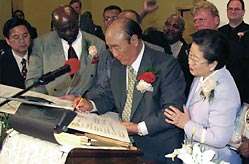Beginners in blogging: the first time bloggers - how to start?
ORIENTATION WEEK - KICK OFF!
(8 week Web Ministry Education Program)
Few Introductory Words
This first week is just orientation, yet it is very important to synchronize everything so we can work well together in the following 6 weeks. The 8th week you'll have to complete one FINAL-GRADUATION PROJECT.
In these few weeks I will have to find the way to effectively convey to you some of the key points I’ve learned about blog-writing. Each exercise we will focus on learning some specific point - easy to do and learn from it through your own experience. To support your learning process I will use comments and some supplement "Reading materials", some Videos etc. In some cases we will use skype to communicate.
There are around 30 people in this course, so lets try not to misuse each other's time, stay focused, be short and specific on the point, be constructive and positive. What I want to convey to you has Amazing Power. Let's see how much as possible you can get in this short time. The time until 2013 is short!
Assignments
There are 4 things we have to finish in this Orientation Week:
1. Answer the Questions of your skills so that we can pair you up in a way you can support each other and best express your potential
2. Watch Orientation Videos ("Most common beginner mistakes" and "The Power of Blogging")
3. Take notes - Listen for the most important practical points that you'll need once we start. (Email these notes and observations to us)
4. Final clarifications - get familiar with the procedure - so that you can know how things will work, clarify all uncertainties, and focus on what you're about to do during these few weeks - Learning Web Ministry!
5. Reading supplement - After the videos I added short reading matterial that could be helpful.
1 VIDEO: The Power of Blogging
See this video and focus on understanding the key words and WT marketing.
Take notes:
How can blog help us in our business - Witnessing? How can we reach our clients - contacts (Readers)? How to make people easily find us? or find help?
2 VIDEO: Biggest mistakes of first time bloggers
See the first 5 min. of this video and take notes:Focus what you have to remember not to repeat some of them when we start! What are the beginner mistakes? Why you need 10-20 blogs to begin? What is our deadline? (2013)
READING SUPPLEMENT (1)
These few points are just drafted with the purpose of setting your mind in the direction of what and how to write and use Blogs for most effective Witnessing. Read them without thinking or worrying too much, what is needed you'll learn in the process.
Blogging
Far too often I find that people are getting caught up with the technical aspects of blogging like which plugins are the best, which designs are the most appealing, which methods of SEO yield the greatest results while at the same forgetting about the most important aspect of all, connecting with real people.
It’s certainly a good idea to work on creating an appealing looking site that can also effectively draw in traffic from search Engines like Google, Yahoo and Bing. Yet if people are instantly clicking away from our material and never return again then we’re failing as bloggers and as authors.

The objective is clear; we want use Internet to Educate the society about the Truth - convey God's heart and vision in any way possible. In the course you'll learn how to create blog, how to design it (to be effective), how to write for outside people (to inspire them), how to reach to many readers (be visible).

1st Create blog and start Writing
Writing Tips
After creating your own blog you have to start writing and here are few tips:
1. Write from the heart.
In spiritual experience with God, He gave me a vision, that something I would write will reach millions of people and He told me, "Share my Heart with the people".
Readers can understand True Fathers heart and vision through us. They have to come in touch with our experience, our understanding written with authenticity and soul in a very personal way.
Write about topics you are passionate about, that you’ve experienced yourself
2. Be insanely useful - Living for the sake of others
Most popular and successful blogs try to be very very useful. Go for the usefulness route: whatever topic you write about, try to be as useful as humanly possible. Seriously. Create a resource like no other. Even if it’s being done elsewhere, you can explore new angles, create new resources, give tips from your own experience. One post after another, pound your readers with useful information. They will love it.
3. Keep the reader’s interests and problems in mind
It’s important to stress that we’re thinking about the reader’s problem, not our own glory. Therefore, you should know: Who are your readers? What is your target audience? To give something better read other blogs with the same target audience. On my blogs, for example, many readers search how to reach true love, have successful marriage, educate their kids better, be good parents. Other of my blogs and articles serve those who need some insight to grow spiritually; meditation, prayer, positive thinking, positive words, use the power of visualization and so on.
People are reading because they are searching for something. — and therefore, I would teach you how to use that, give them something better and witness to them. Some readers face problems with productivity and organization, with health and fitness, and so on. You can connect each of these areas explained in a principle way. Why? The Principle gives the real solutions in each area of life. In your articles you have to show that to them. Not with the selfish desire to trick them to something, but to make it useful in their lives. To guide them how to lead principle life. Once you’ve identified the problems, again, try to be as useful as possible in solving them.
4. Write catchy headlines. Headlines are most important to put you in Google. Headlines are like advertisements for your posts — if they’re not very good, no one will read the posts. You could have amazing content, but if the headlines suck, you’ve got nothing, as far as readers are concerned. Readers may find your posts and you rely on the few words of your headlines to draw them to the actual post: in their feed reader, in a link from another blog, or on a social media site such as Digg or delicious.
Consider two headlines for the same exact post: One of the headlines may not get many readers, but the other one can become your most popular posts ever. In a few words, it tells people that 1) it will solve their problem 2) it will do so in a very useful guide format. With those two points succinctly conveyed, they click on the headline and read the post. Pay special attention to the popular headlines on other blogs, and try to figure out what works and why.
5. Focus on the essential. A blogger could spend every waking hour on his blog, not only writing posts but formatting them, finding photos and links, reading and responding to comments, checking stats, tweaking the blog’s layout and design, keeping updated with the social media, reading feeds, checking and responding to email, keeping up with Twitter … and so on. But you have to figure out what’s essential, what you really need to do, what actions pay off … and spend your time doing these things. Let the other stuff fade to the background, and do them infrequently. I still do most of the other stuff, but I try to minimize the time I spend on them, and place most of my emphasis on the essentials.
6. Give them a reason to come back. Why would a reader keep coming back to your blog? Why would they, when there are so many other blogs out there to subscribe to? You’ve got to give them a reason. And the reason is that they can see what amazing content we provide based on knowing the Principle. Just sending them to some of our speeches or existing contents will not do that. With your writing you have to help them understand what is helpful and where.
7. Don’t just write about yourself. Most people aren’t interested in reading personal journals unless those journals are about people who are doing something they want to do. That kind of journal, then, becomes extremely useful in solving a problem they have (family, relationship, children, social concerns, personal and spiritual growth etc.). And that’s why it works. Remember that you’re not writing for yourself. You’re writing for an audience - we have to transform their lives!
8. On social media. I could never have found as many readers if it weren’t for the social media sites — I use Bulgarian ones, but in English is mostly Digg, delicious and Stumbleupon. So I can’t downplay the importance of these sites. They can send you tons and tons of traffic. It is takes some effort to get popular on these sites but if members support each other will be easier.
For a new or smaller blog, the best way to get a popular post is to get a link from a bigger blog. How do you get links from bigger blogs? Write an insanely useful post that comes from the heart, addresses a common problem, and has a great headline. Then other bloggers or editors of bigger blogs may create link to your article.
9. Don’t be afraid to try new things. Blogs can get stale if they do the same things over and over. Look at what other blogs are doing different, and try those things out. Find other mediums, such as movies and magazines and books, and see if you can get ideas from them. Don’t be afraid to experiment, and to fail.
Your Blog Personality
Blogger decision.
Should my blog be information rich and remind users of always handy how-to manual or should I not only provide loads of helpful tips but also give commentary or reviews to truly connect with my readers on a level that they are identify?
Decide who we are - how will you represent our Movement.
What are our areas of expertise? What is the main message we want to give to the people?
We don’t use our logo to shield or hide our personality – you have to fascinate them; who we are and what drives us to succeed.
Blog readers come for your knowledge of the topic and value your insight. That’s what will keep them reading and that’s what will drive them to share your knowledge with those in their social networking groups, peer groups, family and companies.
Make the choice.
If you are looking to create blog, decide on how deeply you want your readers to embrace what they are reading and the message you are working to convey. If you want your message to not only be read but also felt and shared, then don’t be afraid to add some personality to your blog posts.
You are human – don’t be afraid to let your blog readers know that.

























